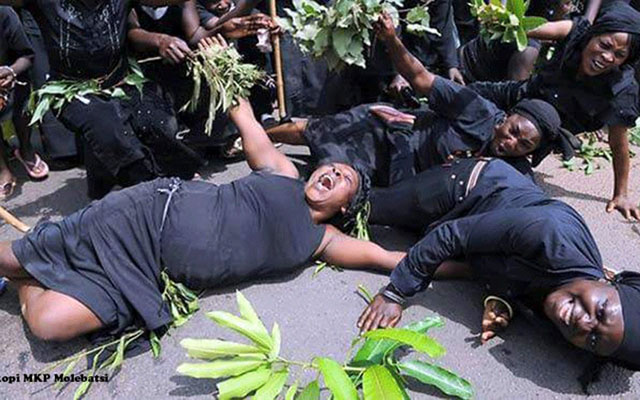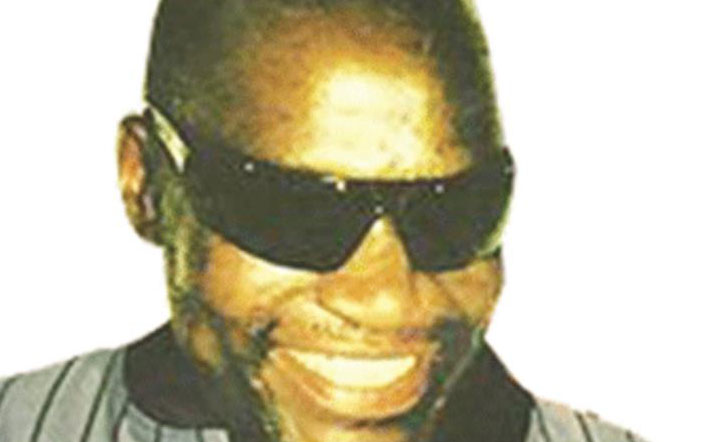Wherever I lay my head is not my home
Ignatius Mabasa Shelling the Nuts
My sister’s friend in the UK is in a difficult situation. We are all wishing if she could come back home and make a new start than being lofty like a flag and lose bits of colour, texture and identity to the wind and snow. When she got to the UK with her husband and children, life was like opening and drinking a bottle of ice-cold Coca-Cola on a hot September day in Zimbabwe.
After about five years, they started having problems which we could tell were to do with unfriendly work shifts, burnout, children becoming uncontrollable, changing family roles, unfulfilled expectations and a clash of cultures.
Then there were the drinking problems, fights, accusations and counter-accusations of infidelity and belonging to bad company.
Eventually they divorced and my sister’s friend got custody of the children.
But she is now in poor health and suffering from exhaustion and other hard-to-explain problems.
The children’s wildness has fully blossomed, and she is on the verge of a nervous breakdown.
This is why we think she could come back home and mend. She can lean on many shoulders and heal her soul.
She needs people more than pounds.
She certainly can’t be mother, father, uncle, grandmother, grandfather and niece, and remain herself.
There are things that only start making sense after many years.
My grandmother used to say, “Hapana munhu asina basa,” meaning everybody in life matters.
Although I never agreed with her because there are so many irresponsible people that I know, I am now beginning to revise my thinking.
Those people we may consider irresponsible and not helpful are actually useful elsewhere if they are acknowledged and given a chance to be a tooth in a cog.
One thing that I am beginning to understand now from my grandmother’s philosophy is the fact that munhu munhu nevanhu (umuntu ngubuntu ngabantu).
It is not lions or wolves that are pack animals, human beings too need each other. Each one of us is a sum total of all of us, of our people, relations, communities and values.
What my grandmother was saying is that we need each other to be complete human beings.
The wise and the foolish, the slow and the quick, the big and the small, the cruel and the kind.
In hindsight, this may be the reason why Tsuro is friends with Gudo in our folktales.
I have punished myself all these years to understand why Gudo never confronts Tsuro to tell him that he is fed up with his antics and being taken for a ride and must therefore end their friendship.
On the other hand, I now understand why Tsuro never gives up on Gudo because of his gullibility, slowness and stupidity.
I am noticing that it is a sweet balance that has even been borrowed and used by Hollywood.
You have the dull but sarcastic Homer Simpson next to his sharp daughter Lisa.
You have the silly Patrick next to reasonable SpongeBob Square pants.
It is true, if the world only belonged to the wise, colourful and boisterous, we would have serious problems.
The view that hapana munhu asina basa (everybody matters in life) is so important when it comes to sharing of values.
It is the way of the village and our people in a traditional setting.
My actions are expected to enhance peace and social cohesion.
I should consider others and not just myself. I should know that I have a role to play in the life of others.
The village philosophy was underpinned by sharing — kukumbidzana.
Sharing respect, sharing work, sharing water, food, ideas, socialising the young and offering psycho-social support to those in distress.
Relationships were very critical and almost everybody was related and if they were not related based on making connections through totems, people would create relationships that they took seriously.
So, one would have lots of vazukuru, vana sekuru, mbuya, tete, anababa nana amai.
And people successfully exploited these relationships to make sure there was support, social order and harmony.
Unlike today, where parents spend the day at work and the children at school, or at home with a stranger called a maid, back then children were raised by all.
If an adult saw a child misbehaving, they had authority to reprimand that child and even beat him up.
And there was no protesting or appealing to anyone about the decision made by that adult.
Actually, wanting to appeal or justify their actions would get the child into more serious trouble.
Today, I can see children misbehaving and may not even care about them because they are not my children. Or, I may decide to caution or reprimand the children, but they will have the audacity to answer back and tell me in my face that, “You are not my father!”
Nobody is accountable to anybody.
Like the kombis, we are too busy dodging the police and the potholes of life.
These are the problems of being residents of the cities.
In the city we are faceless, totem-less and unrelated. If I see you wanting to address me by my totem I become suspicious of your motives.
In the city, nobody cares whether the guy next door is beating his wife or being evicted by his landlord for no reason.
In the city, we are far too busy chasing money and opportunities such that we don’t even care about values and relationships that don’t pay.
In the city, we don’t know each other, and we don’t care. I have often heard the poor folk kumusha making terrible and unfortunate assumptions about city folk. You can hear them say, “Muti kuna Patireki zvanzi ugouyawo nevazukuru paKirisimasi.”
What they don’t know is that Patrick and the person they are giving their message don’t visit each other even though they are neighbours kumusha.
Once you are in Harare, you get swallowed by survival, busyness and nonsense.
Kumusha hapana munhu asina basa because they respect elders.
Before kumusha got visited and contaminated by the city — it did not matter whether an elder was wrong or right, he still earned his respect.
A son-in-law respected his mother-in-law, and the mother-in-law respected her son-law.
A wife respected the husband and the husband his wife.
It was reciprocated and it worked very well.
Divorce was not an individual’s decision, but involved the whole clan.
In the event of domestic violence — each person knew who to report the matter to — someone mandated to hear out the two parties and not just anybody.
Matters and disputes were solved effectively because people respected authority and not talk show hosts.
If an elder gave orders about what was to be done and what was not to be done, his or her decision was final.
This is contrary to the situation today where there is disregard for authority.
My cousin in the UK was telling me how he was trying to rein in his eight-year-old son in a supermarket.
The young man had been touching items on a shelf and upsetting the order of the merchandise. My cousin told his son to stop what he was doing. The boy ignored the father and continued misbehaving.
My cousin said he got angry and shouted at his son to stop what he was doing.
He says the boy stopped and looked at him straight in the face and said in a British accent, “Why?” At that point, he said he had to switch to Shona in order to drive his point home and to show that he was really angry without attracting attention.
The condition and well-being of Africans living outside their cultures is terrible and disturbing.
While each culture has provisions for orderly mating and child rearing that create patterned systems of marriage and family, the Africans in the Diaspora are shocked, confused and being forced to make drastic changes to the marriage and family pattern they are used to.
The results of the drastic transformation of the African’s way of life in the Diaspora go on to destroy the universal societal need of passing on culture from one generation to the next.
Most Africans in the Diaspora are struggling to fit in their new societies while at the same time fighting those very societies not to affect or influence them, their families and cultural values.
They are trying to eat their cake and still have it. Unfortunately, culture is more than eating sadza nemuboora.









Comments